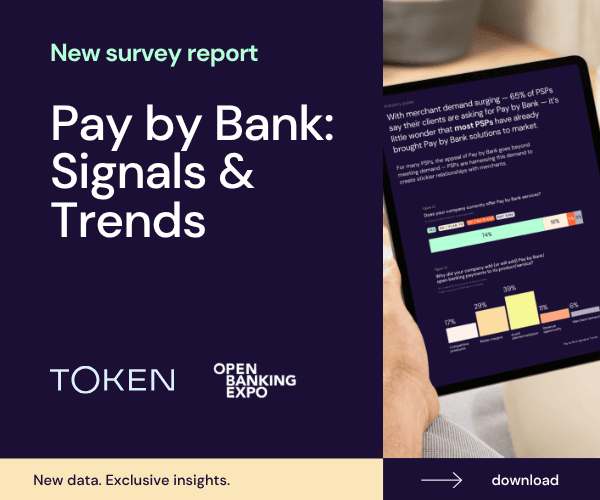Small businesses (SMEs) are the lifeblood of the UK economy, yet their diverse needs are often oversimplified.
Commonly defined as businesses with up to 250 employees and an annual turnover under £50 million, this broad categorisation fails to capture the nuanced needs of most SMEs.
Over 99% of UK SMEs have fewer than 20 employees. That’s 5.3 million businesses which, according to our own proprietary insights from over 4,000 small business users, often don’t have a dedicated finance person or external accountant. Instead, it’s the business owners using ‘beyond banking’ services such as invoicing and payments.

Mark Hartley, founder of BankiFi
It’s these business owners that find themselves caught in a financial services gap. They are neither personal account customers nor large corporates, yet their options are limited to using one of these digital products. Taking a one-size-fits-all approach means banks are failing to address the unique needs and challenges of small business owners, hindering their growth and success.
What are banks missing out on?
With more than 500,000 new businesses opening each year, the opportunity couldn’t be bigger for traditional banks. By not having a dedicated product for these small businesses, SMEs are turning to market challengers that do offer solutions specifically tailored to them, helping to solve their unique pain points.
As a result, banks are losing out on much sought-after deposits into business current accounts. The knock-on effect is the need to borrow from the wholesale markets which, in the current interest rate climate, puts enormous pressure on net income margin. This is further compounded by them losing relationship primacy, which could be catastrophic for such an important segment of customers.
The real challenges facing small businesses
Small businesses with 0-20 employees are plagued with daily issues such as:
- Being time poor: Business owners often wear multiple hats, leaving little time for financial management
- Late payments: cost SMEs on average £22,000 a year and leads to 50,000 business closures annually
- Lack of support and relationship management: Without dedicated relationship managers, these businesses struggle to access financial advice and insights that are tailored to their needs.
Despite these challenges, banks believe that SMEs already have the tools they need to manage their finances. Whereas our own data tells a different story, revealing 90% of our small business users do not connect accounting software to our solution.
Given the regulatory requirements for digital tax submissions under the UK Government’s ‘Making Tax Digital’ strategy coming into effect in 2026, this could present a mutually beneficial opportunity for banks to offer a much-needed service to this segment, which would be revenue generating for them, and a gamechanger for SMEs.
In short, if banks pay attention to the needs of their small business customers, there will be opportunities for the bank to grow with them – from their bottom line, to an increase in deposits.
What’s the way forward for banks?
Recognising that small business owners are the primary users of these banking services, not their accountants, banks should focus on developing and offering solutions that specifically address:
- Payment collection: Streamlining these processes can help address the late payment crisis.
- Invoicing: The ability to support supplier and customer invoices within the digital banking channel is more important than integrating with online accounting packages. Accounting software is for accountants, invoicing and payments solutions are for the business owner.
- Making Tax Digital: Integrating services that automate tax reporting and provide real-time insights into a business’s tax position can help SMEs make more informed financial decisions and remain compliant with minimal effort.
- Cash flow forecasting: Tools that visualise their cash position over configurable periods help improve their cash management.
- Working capital finance: If cash becomes tight, quick access to capital can be crucial for growth, or managing cash flow gaps.
Acknowledging this financial services gap and providing solutions tailored to the needs of SMEs can be transformative for banks, with one of our bank partners reporting a 62% year-on-year increase in business current account openings after introducing a solution that helps small business users get paid faster.
This initiative continues to see 79% of users getting paid within two days of SMEs issuing their invoices, showing that if you give business owners and their customers the right tools to make a payment, they will do so promptly.
Conclusion
Rethinking small business banking is about reshaping how banks approach and serve the lifeblood of the UK economy.
By understanding who specifically needs these solutions and their needs, in turn, banks can improve their bottom lines and contribute to economic growth and stability. Those banks that recognise this opportunity and act swiftly will likely find themselves at the forefront of a new era in business banking. It will also open the door to create:
- Relationship primacy
- Increased deposits
- Expanded lending opportunities.
Mark Hartley is founder of BankiFi
Get access to more exclusive insights
At Open Banking Expo UK & Europe, BankiFi will be releasing a data-driven report that looks to bust industry myths surrounding small businesses and how banks perceive them. Get access to your copy by visiting BankiFi on Stand G23 during the event. Click here to find out more about exhibiting, speaking and attending.





